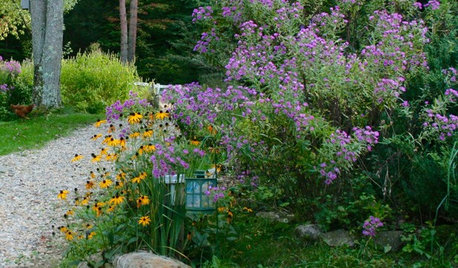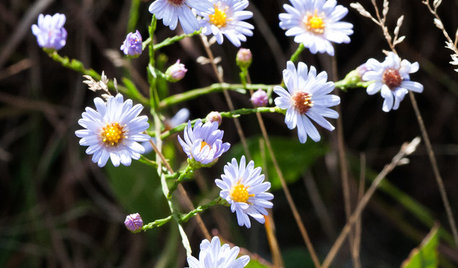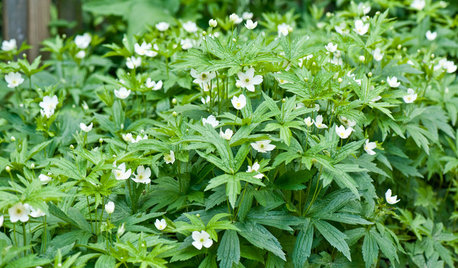Jerusalem artichokes
slashy
15 years ago
Related Stories

EARTH DAYThe Case for Losing the Traditional Lawn
Work less, help the environment and foster connections by just saying no to typical turf
Full Story
GARDENING GUIDESTop 10 Native Plants for the Northeast
For a low-maintenance, wildlife-friendly landscape, use native plants adapted to the climate and range of soils in the Northeast
Full Story
GARDENING GUIDESGreat Design Plant: Skyblue Aster (Symphyotrichum Oolentangiense)
This showy aster tolerates dry conditions and brings in the pollinators with its violet-blue flowers in fall
Full Story
GARDENING GUIDESGreat Design Plant: Anemone Canadensis Adds Pizzazz to Water’s Edges
Plant Canadian anemone along pond, lake or stream edges for a splash of white flowers in late spring
Full Story
DECORATING GUIDESDecorating With Nature in Fall and Winter
Bringing the beauty of the changing seasons inside is easy and inexpensive. Here are 16 ideas to get you started
Full Story






Glenn_50
slashyOriginal Author
Related Professionals
Franconia Landscape Architects & Landscape Designers · Middle River Landscape Architects & Landscape Designers · Waterbury Landscape Contractors · Berkley Landscape Contractors · Elkridge Landscape Contractors · Florham Park Landscape Contractors · Hendersonville Landscape Contractors · Hoover Landscape Contractors · Longview Landscape Contractors · New Baltimore Landscape Contractors · Seven Hills Landscape Contractors · Watertown Landscape Contractors · West Orange Landscape Contractors · Chicago Ridge Landscape Contractors · Oxon Hill Landscape Contractorsfarmerdilla
flora_uk
teauteau
dirtslinger2
Beeone
cabrita
flora_uk
jll0306
cabrita
fliptx
catherinet
Macmex
denninmi